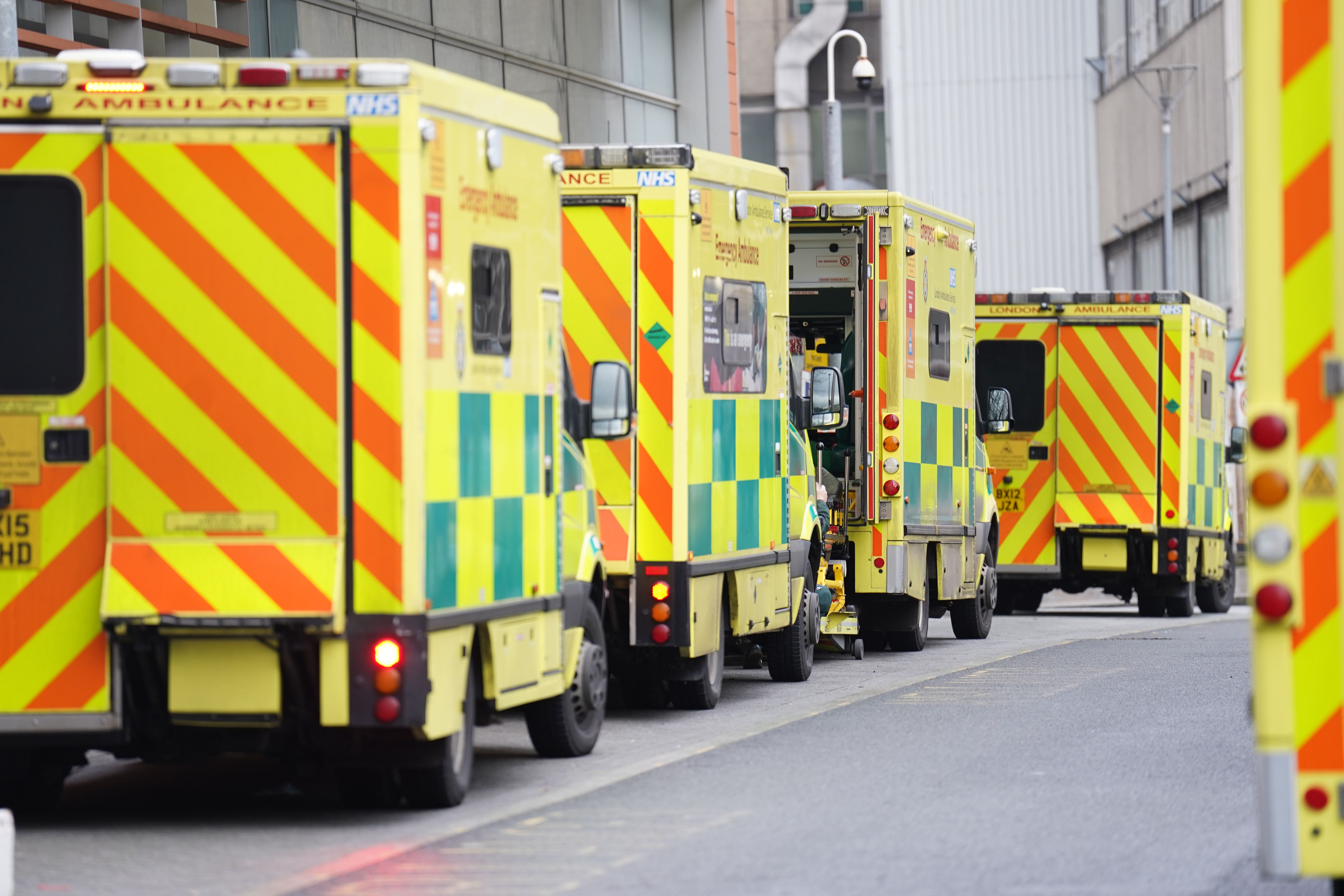Health Secretary says ambulance strike cover was not enough to keep public safe
Steve Barclay has written to the GMB setting out why the UK Government’s anti-strike legislation is needed.

Your support helps us to tell the story
From reproductive rights to climate change to Big Tech, The Independent is on the ground when the story is developing. Whether it's investigating the financials of Elon Musk's pro-Trump PAC or producing our latest documentary, 'The A Word', which shines a light on the American women fighting for reproductive rights, we know how important it is to parse out the facts from the messaging.
At such a critical moment in US history, we need reporters on the ground. Your donation allows us to keep sending journalists to speak to both sides of the story.
The Independent is trusted by Americans across the entire political spectrum. And unlike many other quality news outlets, we choose not to lock Americans out of our reporting and analysis with paywalls. We believe quality journalism should be available to everyone, paid for by those who can afford it.
Your support makes all the difference.The Health Secretary has told union bosses that the “voluntary arrangements” put in place during recent ambulance strikes were not enough to “ensure patient and public safety”.
Steve Barclay has written to the GMB setting out why minimum service levels needed to be set into law during “blue light” industrial action, which he said had the potential to “put lives at immediate risk”.
It comes as anti-strike legislation is due to be debated on Monday by MPs.
The Cabinet minister, in a letter seen by the PA news agency, said he had been asked to reply to the union on the Prime Minister’s behalf after it published an open letter saying ambulance staff felt “demonised” by ministers.
During recent action I have not been reassured that the current system of voluntary arrangements can be relied upon
The GMB had asked the UK Government to “stop attacking us” after Rishi Sunak said it was “terrifying” that the public did not know if they would “get the treatment they need” during industrial action.
Paramedics, call handlers, drivers and technicians from the Unison and GMB unions took part in staggered strikes across a 24-hour period on Wednesday.
In his letter dated Sunday January 15, Mr Barclay said he accepted that a “certain amount of disruption is inherent to any strike”.
But he argued that anti-strike legislation was required to ensure a nationally agreed level of service cover was in place when ambulance workers join picket lines in future.
“During recent action I have not been reassured that the current system of voluntary arrangements can be relied upon to ensure patient and public safety,” the Health Secretary said.
“While all unions involved in the recent strikes agreed to coverage of category 1 calls, not all agreed derogations for coverage of all category 2 calls, which includes serious conditions such as a stroke or chest pain.
“Given that these calls are urgent, this is material to the risk to life of the strike action.”
He said assurances from trade unions about the level of cover across ambulance services had been “volatile” in the run–up to strikes, with negotiations “still taking place” late into the evening before a strike day.
Defending the controversial Strikes (Minimum Service Levels) Bill, Mr Barclay said it would provide the public with “much needed assurance that a certain level of urgent and time critical care will always continue throughout strike action”.
Ambulance workers and firefighters were being included in the legislation because “we recognise disruption to blue light services puts lives at immediate risk”, he added.
The Health Secretary said use of the proposed legislation would be a “last resort” if voluntary arrangements could not be secured.
Mr Barclay denied that it would hinder employees’ right to strike, but instead “reflect that some individuals will not be able to strike at certain times so that a minimum service level can be maintained”.
Under the new legislation, employers will be required to issue work notices seven days before strike action and only after consulting with trade unions.
The GMB said its ambulance committee would discuss the letter at Monday’s meeting and consider its response.
Ambulance staff are scheduled to walk out again on January 23.